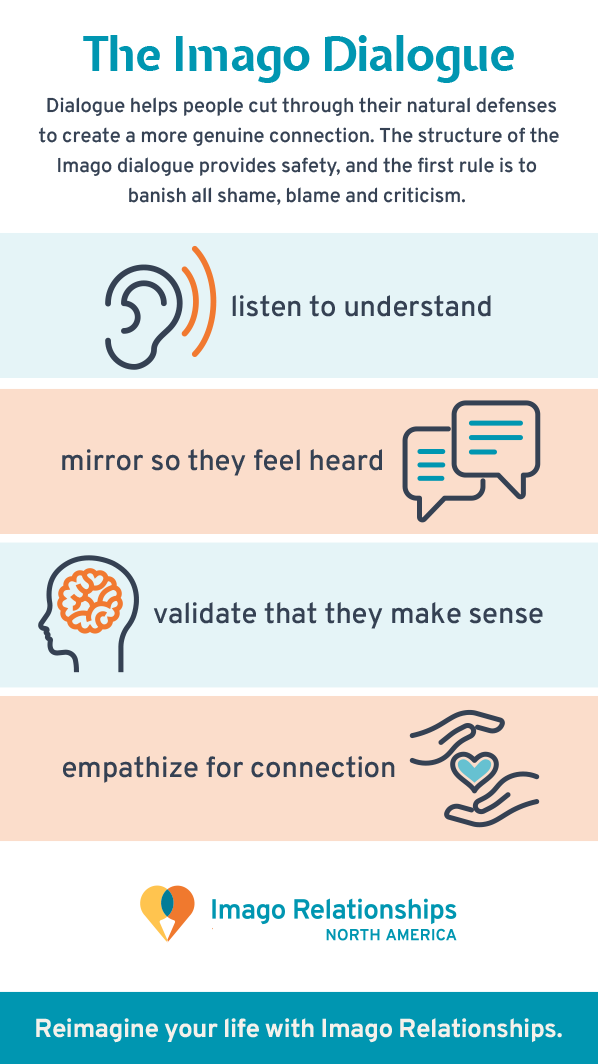
When couples fall in love, the feelings and emotions can be all-consuming, powerful, and uplifting. Couples often focus on planning for a future together and go through all the joy of the "firsts" they get to explore together hand in hand. This is an example of the beginning stage of a relationship, and it won't last forever. Staying together and enjoying a healthy and strong relationship is even more important.
When you and your partner come together with unique backgrounds, emotional attachments, and priorities, those differences may create some conflict.
You are no longer making decisions just for yourself, and you're now considering another person in day-to-day and life goal decisions. So, as a couple, you are bound to clash occasionally. Not to worry, it's inevitable to have disagreements, and they're not necessarily a bad thing. It's a significant change to go from a single person to being a couple, so disagreements are expected when two people shift to making life decisions together.
However, learning how to disagree in a way that deepens your relationship is essential for the health and longevity of the relationship. So, let's talk about how to disagree with your partner in a way that keeps your relationship strong and healthy.
While there's no one-size-fits-all plan for solving relationship arguments or disagreements, there are steps you can take to help ease tensions, improve communication, and reach effective resolution to problems that arise in your relationship.
Even when emotions are running high for one or both of you during a disagreement, it's always possible to keep your communication lines open and safe. Maintaining the health of your relationship is essential to be a safe space for both of you. Let's start with a critical first step - acknowledgment.
Acknowledge Your Partner's Feelings and Experiences

Many couples struggle with this simple first step, yet it's vital for the life of the relationship - each partner needs to be acknowledged for how they feel and what they experience. Perhaps you struggle personally with feeling defensive while arguing with your partner, or maybe you feel angry or hurt. Are you being heard and acknowledged for how you feel or what you're experiencing? You are completely entitled to your feelings.
Your partner is also fully entitled to their feelings and experiences. So, remember to pause in those stressful moments and acknowledge how your partner feels and what they're experiencing. I encourage you to fully acknowledge and accept both positive and negative feelings first before you try to focus on problem-solving. It's essential to avoid bypassing this step and hurry along, as this step begins calming the water where deep and genuine connection grows.
Validate and Empathize Your Partner's Feelings and Experience

The next step is two-part, and while you are entitled to unpleasant feelings that result from an argument, your partner is likely experiencing many of those feelings as well. After acknowledging your partner's feelings and experiences, validate your partner, which helps you work together as a team.
Regardless, if you disagree with what your partner feels or is experiencing, and I'm not implying that making up an agreement is necessary – it often isn't. It's unreasonable to force parties to agree to something they inherently disagree about. Acknowledging and agreeing with your partner without validation and even empathy will not make the problem go away. Take the time in this second step to validate, such as this example:
Validation and Empathy: A Sample Exercise
Validating and empathizing with your partner is sometimes as simple as saying the following:
- "I see you and understand what you're feeling.”
- “It makes sense to me you'd see it that way, and if I were in your shoes, I might feel the same way."
What you're saying to your partner is:
- "I hear what you are saying, and it makes sense to me.”
- “If I were in your shoes, I would feel hurt."
We call this process the Mirroring Exercise. I encourage the mirroring exercise for all my clients to feel heard and seen by their loved ones. The mirroring exercise works like this:
Imago Mirror Exercise - Validate:
- Sender: Speak slowly about a given topic, using short sentences.
- Receiver: Repeats back to sender everything that is being said, word-for-word.
- Maintain eye contact at all times.
- Receiver: May hold up their hand to signal the sender that they're moving too fast. When the sender is finished speaking, the receiver validates and empathizes by saying:
- I hear what you are saying, and it makes sense to me.
- If I were in your shoes, I might feel the same way (list the emotions they've expressed to you).
- Did I get that correct?
- Did I miss anything?
- Is there more?
Imago Mirroring Exercise Tip:
During this exercise, partners are not permitted to ask each other questions about their feelings or distract from what their partner is sending. Partners will likely feel uncomfortable. That's normal! Trust the process for the health and longevity of your relationship. You're actively deepening your connection and growing your love.
Practice this Imago Mirroring exercise daily. Start the exercise for about 20 minutes (10 minutes for each person) to validate and empathize with your partner regularly. You'll get in the rhythm, and it will become easier and more comfortable with time, especially once you see the benefits in your relationship.

Imago Mirror Exercise - Empathize:
It's vital to understand and remember that acknowledging and validating your partner's experience – their emotions, thoughts, and reactions – opens the door to allowing your relationship to remain a source of comfort and safety despite your disagreement. Empathizing is the last step and goes like this:
- "If I were in your shoes, I also might be feeling the way you are feeling."
When you empathize with your partner and let them know you hear and see them, it will help you and your partner to connect on a much deeper level. Opening that connection can help you move forward together in a safe space with love.
When you and your partner disagree, pause and take a breath to collect your thoughts to shift into these three actions:
- Acknowledge
- Validate
- Empathize
Remember to incorporate these steps into your relationship communication, and it will become second nature to ensure your partner is seen and heard. Encouraging your relationship to grow stronger, more loving, and a safe place over time is worth every bit of your daily time and energy.
If you're struggling with conflict or communication in your relationship, we are here to help with Imago Relationships Workshops and Imago Relationships Therapy. We also have Online Couples Therapy and Online Couples Workshops too!
Discover more about Imago with our Imago Professional Membership, Imago Professional Facilitators, Imago Professional Training, and Imago Educational Webinars.

This blog post was written by Mara Fisher, LCSW, MCC
Mara is a Licensed Psychotherapist and Master Certified Coach. She is also a Certified Imago Therapist and Advanced Imago Therapist.
Mara's career has grown out of a gift of intuition – which she's been aware of since childhood – and a natural inclination for using that gift to help empower others. Guiding and coaching feel as adventurous to her as the way she's lived her life. Born in New York City, Mara took European trips in her youth and has lived in England, France, and New Mexico in the United States.
Mara believes the boldness and confidence she gained through taking risks and expanding boundaries have contributed to her personal and professional successes. She loves seeing the joy in her clients when they find the courage to challenge themselves and transform their lives as well.
Mara has been a perpetual student, always exploring her inner self by learning new skills and techniques that help her to understand herself, other cultures, and what it is that makes us human. She applies that learning in a way that enables her clients to live fully in the present, to face the challenges in their futures, and to live their dreams.
For nearly three decades, Mara has focused on methods that help her clients realize that they already have answers to their questions. Instead of letting them give their power to her because she can often intuit what is going on in their lives, she can help them claim their power and solve their own problems.
Today Mara serves clients all over the globe through telephone and email communications. Her approach with each individual is uniquely shaped by who the person is and by their circumstances and needs. Tools and techniques selected for each client come from the expertise she's built during her career.
Check out Mara's website too!



